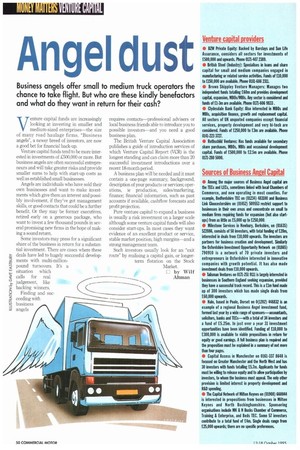Angel dust
Page 52

If you've noticed an error in this article please click here to report it so we can fix it.
Business angels offer small to medium truck operators the chance to take flight. But who are these kindly benefactors and what do they want in return for their cash?
Venture capital funds are increasingly looking at investing in smaller and medium-sized enterprises—the size of many road haulage firms. "Business angels", a newer breed of investors, are now a good bet for financial back-up.
Venture capital funds tend to be more interested in investments of £500,000 or more. But business angels are often successful entrepreneurs and will take greater risks and provide smaller sums to help with start-up costs as well as established small businesses.
Angels are individuals who have sold their own businesses and want to make investments which give them an interest and possibly involvement, if they've got management skills, or good contacts that could be a further benefit. Or they may be former executives, retired early on a generous package, who want to invest a few thousand pounds in several promising new firms in the hope of making a sound return.
Some investors may press for a significant share of the business in return for a substantial investment. There are cases where these deals have led to hugely successful developments with multi-million pound turnovers, It's a situation which calls for real in ,„ judgement, like
z backing winners.
O Finding and succeeding with • business • angels requires contacts—professional advisers or local business friends able to introduce you to possible investors—and you need a good business plan.
The British Venture Capital Association publishes a guide of introduction services of which Venture Capital Report (VCR) is the longest standing and can claim more than 20 successful investment introductions over a recent 18-month period.
A business plan will be needed and it must contain a one-page summary, background, description of your products or services: operations, ie production, sales/marketing, finance; financial information, such as past accounts if available, cashflow forecasts and profit projection.
Pure venture capital to expand a business is usually a risk investment on a larger scale although some venture capital funds will also consider start-ups. In most cases they want evidence of an excellent product or service, stable market position, high margins—and a strong management team.
Such investors usually look for an "exit route" by realising a capital gain, or longer. term flotation on the Stock Market.
by Will Altman




















































































































